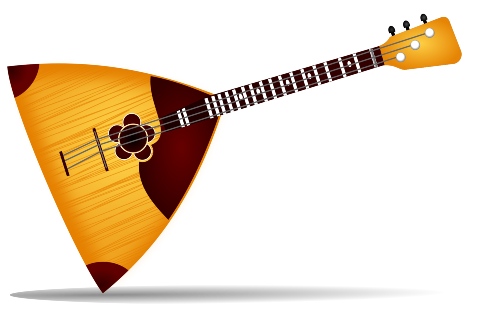- Letters: K/ABCFIL
- Words: 24
- Points: 119
- Pangrams: 1

|
The table provides clues for the roots of words in today's NY Times Spelling Bee. You're responsible for prefixes, suffixes,
tense changes, plurals, doubling consonants before suffixes, and alternate spellings of roots. An exception:
since Sam won't allow S, when the root contains an S, the clue may be for a plural or suffixed form. "Mice" for example.
If a clue isn't self-explanatory, try googling it.
The TL;DR about the site comes after the table.
Past clues are available here |
Today's puzzle
|  |
|
Table content
|
| root # | answers covered | answer's first two letters | answer's length | clue for root (answer may need prefix, suffix, tense change, alt spelling, ...) |
|---|---|---|---|---|
| 1 | 1 | AB | 5 | Surprised (taken …), adv. |
| 2 | 1 | AL | 5 | Archaic exclamation of regret or dismay; from list word for “absence of” |
| 3 | 1 | AL | 6 | Acid opposite in chem. (soluble base) |
| 5 | 1 | BA | 4 | Part of body containing your spine |
| 8 | 1 | BA | 4 | Hesitate or be unwilling to accept an idea or undertaking; or illegal move by a pitcher in baseball |
| 4 | 1 | BA | 5 | Sweet braided Jewish bread, often with chocolate filling |
| 6 | 1 | BA | 8 | Restore dirt dug from a hole, compound pangram |
| 7 | 1 | BA | 9 | Russian ▷-shaped guitar |
| 9 | 1 | BI | 4 | Cheat someone out of $ |
| 10 | 1 | BL | 5 | Color that reflects no light; color of the 8-ball |
| 11 | 1 | BL | 9 | Exclude from membership, usually by secret ballot (compound) |
| 12 | 1 | CA | 8 | Invitation to return for a second audition (compound) |
| 13 | 1 | CL | 5 | Heel sounds on tile, verb; or NPR “car” show guy 2 |
| 14 | 1 | CL | 5 | What you do to a web button or link, verb; or NPR “Car Talk” guy 1 |
| 15 | 1 | FA | 8 | Plan B, compound made from opposite of spring + opposite of front |
| 17 | 1 | FL | 4 | Anti-aircraft fire (the bomber pilots wore … jackets) |
| 16 | 1 | FL | 5 | Derogatory term for press agent |
| 18 | 1 | FL | 5 | Slang for movie, or propel with sudden sharp finger movement (a lighter, switch, or Tiddlywink, e.g.) |
| 19 | 1 | KI | 4 | Strike with foot, verb/noun |
| 22 | 1 | KI | 4 | Murder |
| 20 | 1 | KI | 8 | Recoil (from a gun), or payoff, compound noun |
| 21 | 1 | KI | 8 | Game that’s a cross between soccer & the one the Yankees play (compound) |
| 23 | 1 | LA | 4 | Absence of (talent or imagination, e.g.), verb/noun |
| 24 | 1 | LI | 4 | Tongue off (as an ice cream cone, e.g.), verb/noun |
This site provides clues for a day's New York Times Spelling Bee puzzle. It exists to make it easier for Kevin Davis to take a day off. Most of the clues come from him. There may be some startup problems, but long term I think I can put the clues together with no more than half an hour's work.
The "Bee Roots" approach is to provide explicit clues for root words, not every word. This is similar to what Kevin Davis does, but without information about parts of speech As logophiles, we are pretty good at putting on prefixes and suffixes, changing tense, and forming plurals (including Latin plurals!). The clues cover root words, arranged alphabetically by root word, with a count of words in the puzzle that come from each root. For example, if a puzzle includes ROAM and ROAMING, there will be a clue for ROAM and a count of 2. The root may not appear in the puzzle at all; for example, the 2021-07-23 Bee included ICED, DEICE, and DEICED. For such a puzzle, the clue would be for ICE with a word count of 3.
The Bee Roots approach involves judgement sometimes. For example, if a puzzle includes LOVE, LOVED, and LOVELY, how many roots are needed to cover them? LOVE and LOVED share the root LOVE, certainly, but LOVELY is tricky. LOVE is part of its etymology, but by now, the word means "exquisitely beautiful," which is a lot farther from the meaning of LOVE than swithcing to past tense. I'm inclined to treat LOVE and LOVELY as separate roots. You may not agree, which is fine. Another thing we logophiles share is a LOVE of arguing about words on Twitter.
One last complication, until another one pops up: a few roots have multiple spellings, for example LOLLYGAG and LALLYGAG. Depending on the day's letters, and maybe even the editor's whims, one or both could be in the puzzle's answer list. With such roots, you could see a word count of 2, even if there are no applicable prefixes or suffixes.
I will do my best to keep this site up to date and helpful (I hope). Check it out, and tweet feedback to @donswartwout Tweet to @donswartwout
Many thanks to Kevin Davis, whose 4,500-word clue list made this possible.